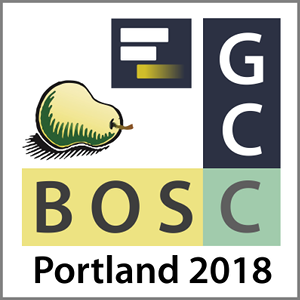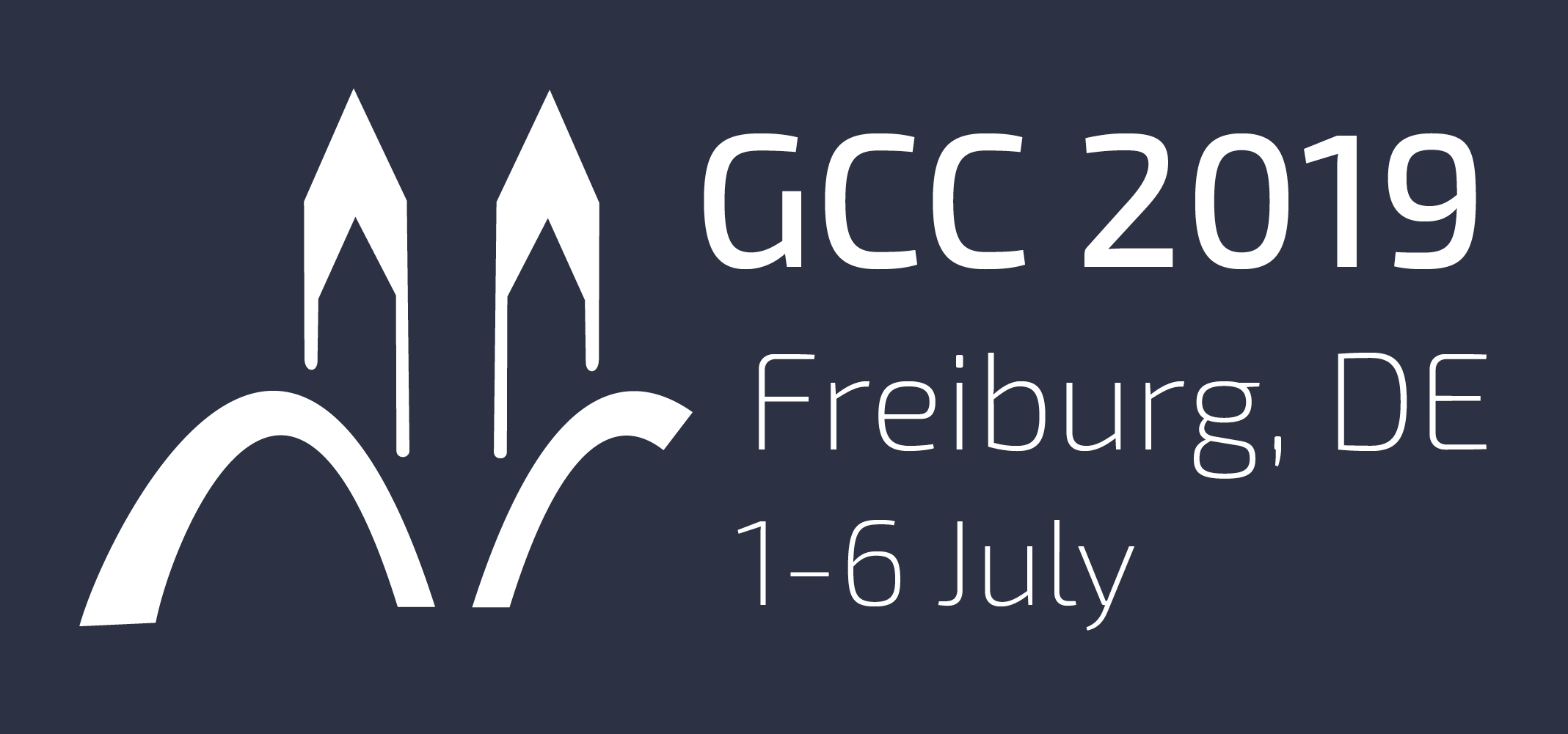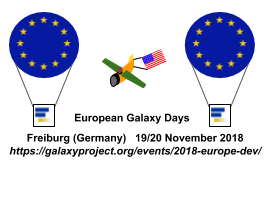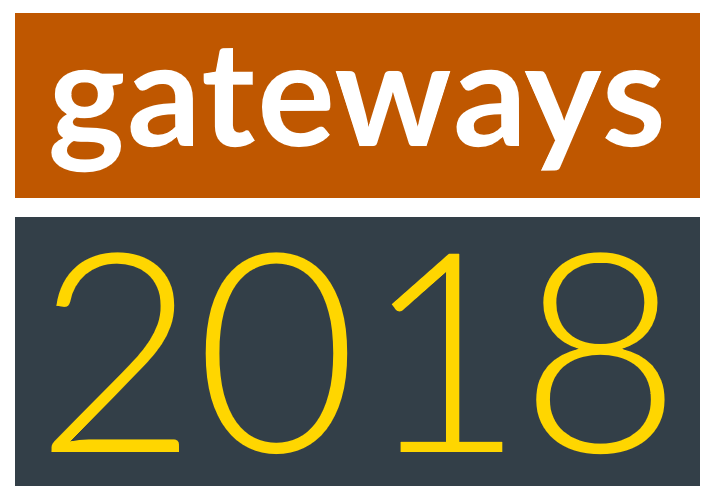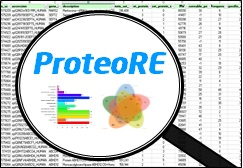Summer (August) 2018 Galaxy News
Welcome to the Summer 2018 Galactic News, a summary of what is going on in the Galaxy community. If you have anything to add to next month's newsletter, then please send it to outreach@galaxyproject.org.
GCCBOSC 2018 is done!
GCCBOSC 2018 was held 25-30 June in Portland, Oregon, United States. The combination of the Galaxy Community Conference and the Bioinformatics Open Source Conference brought together 300 people over an 8 day period. GCCBOSC featured
- 21 training sessions covering 16 topics over 2 days,
- 2+ days of conference sessions with 3 keynotes, 29 accepted talks, 37 lightning talks, and 1 panel,
- Two Poster and Demo sessions, with 88 poster and demo presentations,
- 19 Birds-of-a-feather gatherings, and
- 4 days of collaborative work
Most posters and slides are now linked to from the conference web site. Videos of conference talks will be available within a month.
Conference Reports
- GCCBOSC 2018--post-meeting report @ OBF
- Event photo album from Bérénice Batut
- Final Conference Program (PDF)
2019 Galaxy Community Conference: 1-6 July, Freiburg, Germany
GCC2019 will be held in Freiburg, Germany, 1-6 July. Like previous Galaxy Community Conferences, GCC2019 will feature invited keynotes, accepted talks, posters, and demos, birds-of-a-feather gatherings, multiple days of collaborative work, and plenty of opportunities to network with your fellow data-intensive researchers and practitioners. If you are working in data-intensive life science, there is no better place to be.
 ](https://commons.wikimedia.org/wiki/File:Altstadt,_Freiburg,_Germany_-_panoramio_%282%29.jpg)
](https://commons.wikimedia.org/wiki/File:Altstadt,_Freiburg,_Germany_-_panoramio_%282%29.jpg)
Freiburg is on the edge of the Black Forest, and is famous for its architecture, cobblestone streets and historic districts, and is home to one of Germany's oldest universities (and our host)!. Freiburg is in the Baden wine-growing region and is the sunniest city in Germany.
GCC2019 will be held at Konzerthaus Freiburg in central Freiburg, adjacent to the Freiburg train station.
GCC2019 is hosted by the Freiburg Galaxy Project, the University of Freiburg, and de.NBI (the German Network for Bioinformatics Infrastructure).
 ](http://www.bioinf.uni-freiburg.de/Galaxy/) [
](http://www.bioinf.uni-freiburg.de/Galaxy/) [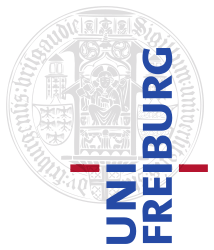 ](http://www.uni-freiburg.de/) [
](http://www.uni-freiburg.de/) [ ](https://www.denbi.de/)
](https://www.denbi.de/)
What about BOSC?
2018 was the first time GCC and BOSC held a joint conference. There is significant overlap between the communities and we had been considering a joint event since at least 2015. Organizers from both communities felt that GCCBOSC 2018 was a success, and that future joint meetings have even more potential for success. Not everything went as smoothly as it could have, but we now have a year's experience and a plethora of excellent feedback and suggestions from conference participants. Both the GCC and BOSC organizers feel that we should explore doing this again.
On the flip side, there are also significant reasons to not permanently join the conferences together: A permanently joint conference risks diluting both communities. GCC also has a different focus from ISMB (BOSC's usual conference partner), and many BOSCers (while still enthused about the GCC partnership) really hesitate to give that up. Planning a joint conference is also more work than planning a standalone GCC.
The Decision
Both sets of organizers, independently and simultaneously (that has to be a good sign :-), decided
- Not to hold a joint GCC and BOSC conference in 2019.
- To look into holding a joint meeting every few years, starting as soon as 2020.
This approach preserves both communities, and has the potential to further increase the synergy between the communities (which was our primary motivating goal in 2018). This also gets BOSC back to ISMB on a regular basis, and helps us avoid some logistical challenges a joint conference would pose in 2019.
A joint meeting in 2020 or 2021 depends on finding a suitable venue (300+ attendees, and more parallel events is just harder) and several other stars aligning, but our aim to bring these communities back together.
GTN CoFest on Metagenomics Training Material, 17 August
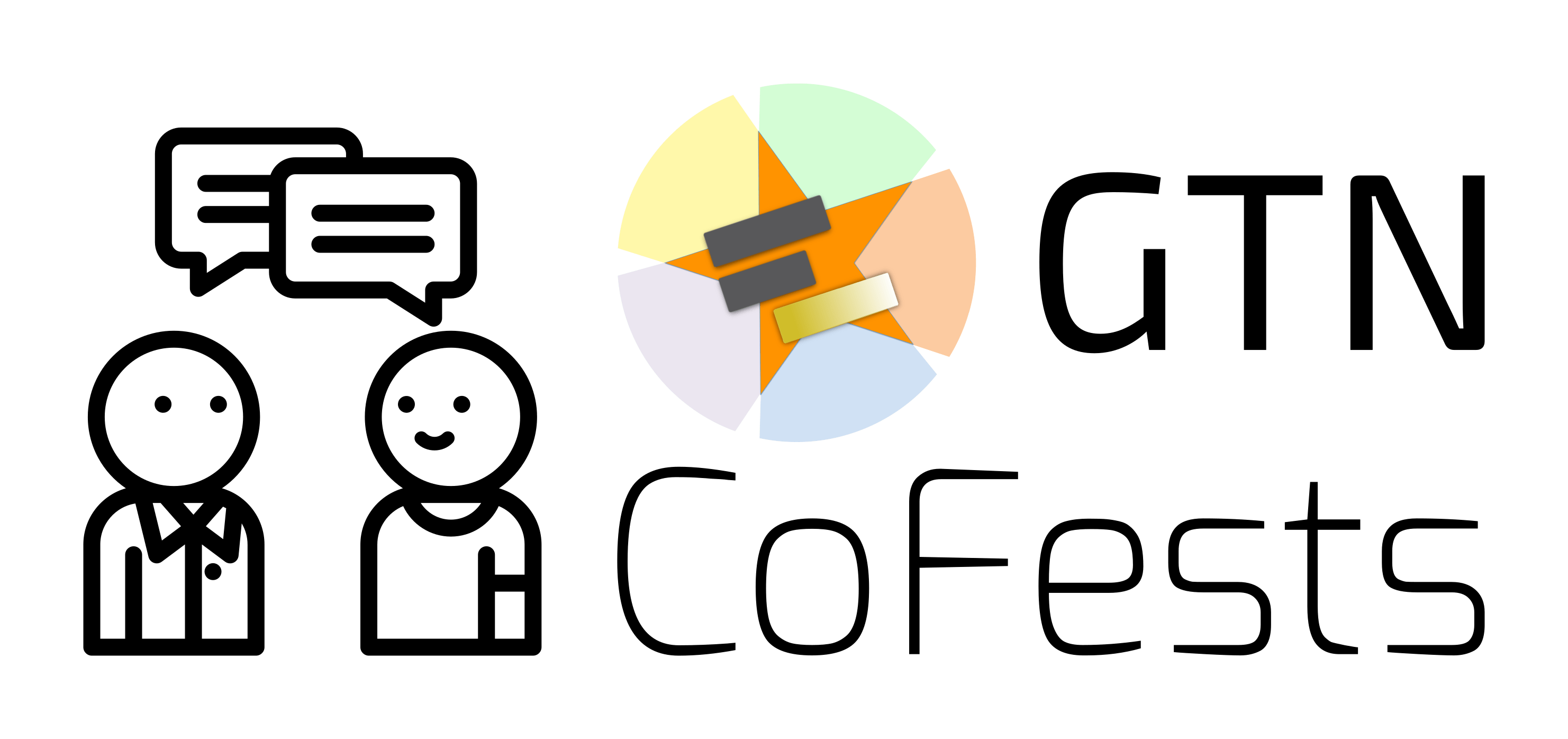
The Galaxy Training Network is organizing regular online CoFests (Collaboration/Contribution Fests) every 3 months on the 3rd Friday for a day of the collaborative work on the training content.
The first one will be on the 17th of August. We plan to focus on metagenomics training; but anyone who would like to contribute on any other topics is very welcome to join. We will coordinate via the GTN Gitter channel and GitHub issues.
2018 SACNAS Workshops
[
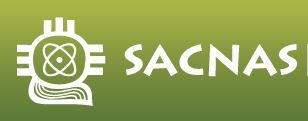 ](/events/2017-sacnas/)
](/events/2017-sacnas/) [
 ](https://software-carpentry.org/)
](https://software-carpentry.org/)[
 ](https://data-carpentry.org/)
](https://data-carpentry.org/)[
 ](https://www.cyverse.org/)
](https://www.cyverse.org/)[
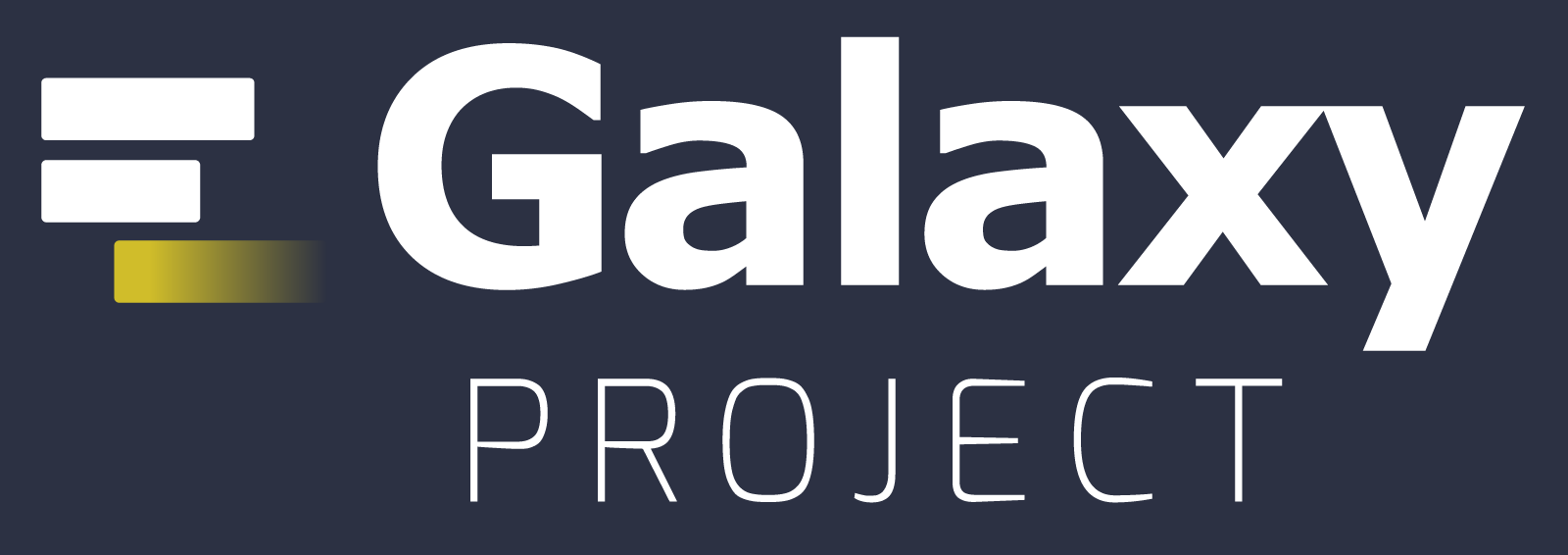 ](/)
](/)
If you are attending the 2018 SACNAS meeting in San Antonio in October, then please consider signing up for one of these preconference workshops:
Data Platforms for Life Science Researchers
Registration is free but space is limited. You are strongly encouraged to register soon. Both workshops are held October 10, the day before SACNAS starts.
Plese note: The Galaxy Community Fund is augmenting SACNAS Travel Scholarships awards for the first ~ 28 scholarship recipients that register for these workshops. The additional funds will cover an extra night's lodging for scholarship recipients, enabling you to arrive the day before the workshops. Funds are limited, and once the funds are allocated, they are gone. (You must have received a SACNAS Travel Scholarship to be eligible.)
European Galaxy Days, 19-20 November, Freiburg, Germany
European Galaxy Days will be held 19 and 20 November 2018 in Freiburg, Germany. The first day will give an overview of the current state of the Galaxy framework with several talks and demonstrations. The second day will focus on developing and extending the Galaxy ecosystem.
The event is free. Registration will open soon. See the event home page for more.
Gateways 2018
Gateways 2018 (September 25–27, at the University of Texas at Austin) early bird registration ends Monday! So, get on it.
Gateways are user-friendly interfaces (including Galaxy) to scientific computing, data, and other domain-specific resources to support research and education. The third Gateways annual conference is an opportunity for gateway creators and enthusiasts to learn, share, connect, and shape the future of gateways as part of a vibrant community with common interests.
Upcoming events
These and other Galaxy related events are coming up in the next few months:
Christophe Caron, 1968-2018
Christophe Caron passed away in May at the age of 50. Christophe was an extraordinary Galaxy community organizer and he is dearly missed. See the SFBI tribute page to Christophe and this Galaxy News item for more about Christophe, his passing, and his many contributions over the years.
Publications
417 new publications referencing, using, extending, and implementing Galaxy were added to the Galaxy Publication Library in May, June, and July.
Highlighted Publications
20 Galactic and Stellar publications.
This included a new paper to reference whenever using, extending, or referencing Galaxy:
- The Galaxy platform for accessible, reproducible and collaborative biomedical analyses: 2018 update, Enis Afgan, Dannon Baker, Bérénice Batut, Marius van den Beek, Dave Bouvier, Martin Čech, John Chilton, Dave Clements, Nate Coraor, Björn Grüning, Aysam Guerler, Jennifer Hillman-Jackson, Vahid Jalili, Helena Rasche, Nicola Soranzo, Jeremy Goecks, James Taylor, Anton Nekrutenko, and Daniel Blankenberg. Nucleic Acids Research, Volume 46, Issue W1, 2 July 2018, Pages W537–W544, doi:10.1093/nar/gky379
A new paper to reference when discussing Galaxy in the context of reproducibility:
- Practical Computational Reproducibility in the Life Sciences, Björn Grüning, John Chilton, Johannes Köster, Ryan Dale, Nicola Soranzo, Marius van den Beek, Jeremy Goecks, Rolf Backofen, Anton Nekrutenko, James Taylor. Cell Systems, Volume 6, Issue 6, 27 June 2018, Pages 631-635, doi:10.1016/j.cels.2018.03.014
And a new paper to reference when discussing Galaxy training:
- Community-Driven Data Analysis Training for Biology, Bérénice Batut, Saskia Hiltemann, Andrea Bagnacani, Dannon Baker, Vivek Bhardwaj, Clemens Blank, Anthony Bretaudeau, Loraine Brillet-Guéguen, Martin Čech, John Chilton, Dave Clements, Olivia Doppelt-Azeroual, Anika Erxleben, Mallory Ann Freeberg, Simon Gladman, Youri Hoogstrate, Hans-Rudolf Hotz, Torsten Houwaart, Pratik Jagtap, Delphine Larivière, Gildas Le Corguillé, Thomas Manke, Fabien Mareuil, Fidel Ramírez, Devon, Ryan, Florian Christoph Sigloch, Nicola Soranzo, Joachim Wolff, Pavankumar Videm, Markus Wolfien, Aisanjiang Wubuli, Dilmurat Yusuf, Galaxy Training Network, James Taylor, Rolf Backofen, Anton Nekrutenko, Björn Grüning. Cell Systems, Volume 6, Issue 6, 27 June 2018, Pages 752-758.e1
And a new paper to cite when discussing Galaxy in a cloud context:
- CloudLaunch: Discover and deploy cloud applications, Enis Afgan, Andrew Lonie, James Taylor, Nuwan Goonasekera. Future Generation Computer Systems, 2018, doi:10.1016/j.future.2018.04.037
Other highlighted papers include:
- Galaxy HiCExplorer: a web server for reproducible Hi-C data analysis, quality control and visualization, Joachim Wolff, Vivek Bhardwaj, Stephan Nothjunge, Gautier Richard, Gina Renschler, Ralf Gilsbach, Thomas Manke, Rolf Backofen, Fidel Ramírez, Björn Grüning. Nucleic Acids Research, Volume 46, Issue W1, 2 July 2018, Pages W11–W16, doi:10.1093/nar/gky504
- ASaiM: a Galaxy-based framework to analyze microbiota data, Bérénice Batut, Kévin Gravouil, Clémence Defois, Saskia Hiltemann, Jean-François Brugère, Eric Peyretaillade, Pierre Peyret. GigaScience, Volume 7, Issue 6, 1 June 2018, giy057, doi:10.1093/gigascience/giy057
- Selection of computational environments for PSP processing on scientific gateways Edvard Martins de Oliveira, Júlio Cézar Estrella, Alexandre Cláudio Botazzo Delbem, Luiz Henrique Nunes, Henrique Yoshikazu Shishido, Stephan Reiff-Marganiec. Heliyon 4 (2018) e00690
- Optimising Scientific Workflow Execution Using Desktops, Clusters and Clouds, Edvard Martins de Oliveira, Júlio Cézar Estrella, Fausto Guzzo da Costa, Alexandre Claudio Botazzo Delbem, Stephan Reiff-Marganiec. 2017 Fifth International Symposium on Computing and Networking (CANDAR)
- Norwegian e-Infrastructure for Life Sciences (NeLS), Kidane M. Tekle, Sveinung Gundersen, Kjetil Klepper, Lars Ailo Bongo, Inge Alexander Raknes, Xiaxi Li, Wei Zhang, Christian Andreetta, Teshome Dagne Mulugeta, Matúš Kalaš, Morten B. Rye, Erik Hjerde, Jeevan Karloss Antony Samy, Ghislain Fornous, Abdulrahman Azab, Dag Inge Våge, Eivind Hovig, Nils Peder Willassen, Finn Drabløs, Ståle Nygård, Kjell Petersen, Inge Jonassen. F1000Research 2018, 7(ELIXIR):968, doi: 10.12688/f1000research.15119.1
- KREAP: an automated Galaxy platform to quantify in vitro re-epithelialization kinetics, Marcela M Fernandez-Gutierrez, David B H van Zessen, Peter van Baarlen. Michiel Kleerebezem, Andrew P Stubbs. GigaScience, Volume 7, Issue 7, 1 July 2018, giy078, doi:10.1093/gigascience/giy078
- Coloc-stats: a unified web interface to perform colocalization analysis of genomic features, Boris Simovski, Chakravarthi Kanduri, Sveinung Gundersen, Dmytro Titov, Diana Domanska, Christoph Bock, Lara Bossini-Castillo, Maria Chikina, Alexander Favorov, Ryan M Layer, Andrey A Mironov, Aaron R Quinlan, Nathan C Sheffield, Gosia Trynka, Geir K Sandve. Nucleic Acids Research, Volume 46, Issue W1, 2 July 2018, Pages W186–W193, doi:10.1093/nar/gky474
- A transposable element annotation pipeline and expression analysis reveal potentially active elements in the microalga Tisochrysis lutea, Jérémy Berthelier, Nathalie Casse, Nicolas Daccord, Véronique Jamilloux, Bruno Saint-Jean and Grégory Carrier. BMC Genomics 201819:378, doi:10.1186/s12864-018-4763-1
- Mining Biomedical Publications With The LAPPS Grid, Nancy Ide, Keith Suderman and Jin-Dong Kim. Proceedings of the Eleventh International Conference on Language Resources and Evaluation (LREC 2018)
- Bridging the LAPPS Grid and CLARIN, Erhard Hinrichs, Nancy Ide, James Pustejovsky, Jan Hajic, Marie Hinrichs, Mohammad Fazleh Elahi, Keith Suderman, Marc Verhagen, Kyeongmin Rim, Pavel Stranak and Jozef Misutka. Proceedings of the Eleventh International Conference on Language Resources and Evaluation (LREC 2018)
- KubeNow: an On-Demand Cloud-Agnostic Platform for Microservices-Based Research Environments, Marco Capuccini, Anders Larsson, Matteo Carone, Jon Ander Novella, Noureddin Sadawi, Jianliang Gao, Salman Toor, Ola Spjuth. arXiv:1805.06180v2
- High Throughput Sequencing-Based Approaches for Gene Expression Analysis, Reddy R.R.S., Ramanujam M.V. (2018). In: Raghavachari N., Garcia-Reyero N. (eds) Gene Expression Analysis. Methods in Molecular Biology, vol 1783
- Evaluating Reproducibility in Computational Biology Research, Oneka, Morgan. (2018) Honors Projects. 690.
- Efficient In Vivo Liver-Directed Gene Editing Using CRISPR/Cas9, Kshitiz Singh, Hanneke Evens, Nisha Nair, Melvin Y. Rincón, Shilpita Sarcar, Ermira Samara-Kuko, Marinee K.Chuah, Thierry Vanden Driessche. Molecular Therapy, Volume 26, Issue 5, 2 May 2018, Pages 1241-1254
Publication Topics
| # | Tag | # | Tag | # | Tag | # | Tag | |||
|---|---|---|---|---|---|---|---|---|---|---|
| 266 | +Methods | 98 | +UsePublic | 59 | +Workbench | 40 | +UseMain | |||
| 35 | +RefPublic | 27 | +UseLocal | 22 | +Reproducibility | 14 | +Tools | |||
| 14 | +IsGalaxy | 11 | +Cloud | 10 | +Unknown | 5 | +Project | |||
| 5 | +Other | 3 | +HowTo | 2 | +Shared | 2 | +Visualization | |||
| 1 | +UseCloud |
Who's Hiring
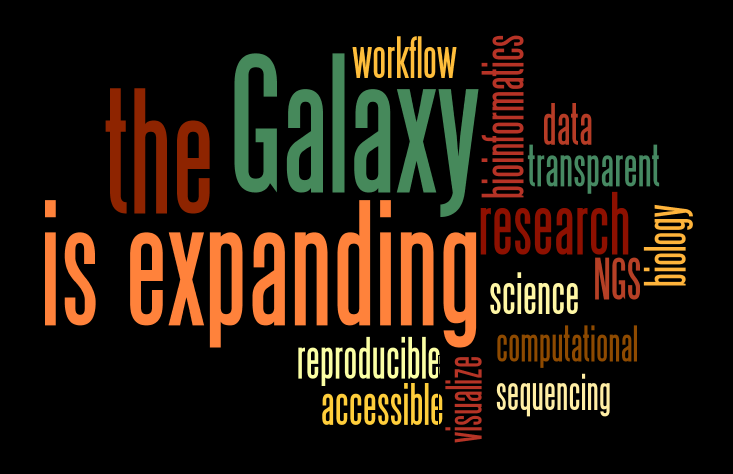
The Galaxy is expanding! Please help it grow.
- Freiburg Galaxy Team has open positions, Freiburg, Germany
- The Blankenberg Lab in the Genomic Medicine Institute at the Cleveland Clinic Lerner Research Institute is hiring postdocs.
- Galaxy Project is hiring software engineers and postdocs at Johns Hopkins, Baltimore, Maryland, United States
Have a Galaxy-related opening? Send it to outreach@galaxyproject.org and we'll put it in the Galaxy News feed and include it in next month's update.
New Galactic Blog Entries
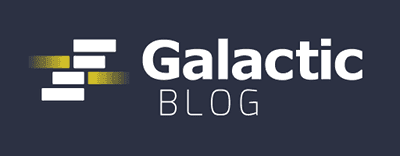 ](/news/)
](/news/)
There are two new Galactic Blog entry:
-
A fruitful year for the Galaxy Training material, by Bérénice Batut
- A summary of recent developments in Galaxy Training materials and the Galaxy Training Network
-
Contributor of the Month: Pablo Moreno, By Björn Grüning
- The first of a monthly series highlighting Galaxy contributors.
Public Galaxy Server News
There are over 100 publicly accessible Galaxy servers and six semi-public Galaxy services. Another public server was added in the past quarter:
ProteoRE
"ProteoRE (Proteomics Research Environment) aims at centrally providing the proteomics community with an online research service enabling biologists/clinicians without programming expertise to annotate and interpret their proteomics data through the Web."
ProteoRE currently comprises tools (including graphical display) for:
- Customary data manipulation (e.g. filtering, lists comparison, ID conversion…)
- Protein list annotation (e.g. information retrieval from public resources - human species)
- Functional analysis (e.g. GOterms frequencies, enrichment analysis) including graphical representation.
- Pathway analysis (e.g. Reactome)
This version also includes Galaxy generic tools and some tools from the GalaxyP project that should be of great help for people who want to (re)process their MS-based proteomics data (e.g. peptide/protein identification). ProteoRE tools are in the Galaxy Toolshed.
See the ProteoRE pubic server directory page for more.
Public Servers in Publications
We tag papers that use, mention, implement or extend public Galaxy Servers. Here are the counts for the past 3 month's publications:
| # | Tag | # | Tag | # | Tag | # | Tag | |||
|---|---|---|---|---|---|---|---|---|---|---|
| 38 | >Huttenhower | 18 | >RepeatExplorer | 13 | >Workflow4Metabolomics | 7 | >ARGs-OAP | |||
| 7 | >Cistrome | 6 | >RiboGalaxy | 5 | >DeepTools | 4 | >UseGalaxy.eu | |||
| 3 | >ARGalaxy | 3 | >Galaxy-P | 3 | [>Genomic Hyperbrowser](https://www.zotero.org/groups/1732893/galaxy/tags/>Genomic Hyperbrowser) | 3 | >Langille | |||
| 3 | [>LAPPS Grid](https://www.zotero.org/groups/1732893/galaxy/tags/>LAPPS Grid) | 3 | >PIA | 2 | >ARIES | 2 | >CLIMB | |||
| 2 | >GVL-Cloud | 2 | >GVL-QLD | 2 | >NCGAS | 2 | >Orione | |||
| 2 | >UseGalaxy.org | 1 | >BioMaS | 1 | >BIPAA | 1 | >CoSSci | |||
| 1 | >CPT | 1 | >DeepVirome | 1 | >Dintor | 1 | >EpiToolKit | |||
| 1 | >GenAP | 1 | >GIO | 1 | [>Globus Genomics](https://www.zotero.org/groups/1732893/galaxy/tags/>Globus Genomics) | 1 | >IGGalaxy | |||
| 1 | >KREAP | 1 | [>Martin Luther](https://www.zotero.org/groups/1732893/galaxy/tags/>Martin Luther) | 1 | >MetaNET | 1 | >Mississippi | |||
| 1 | >NeLS | 1 | >NGS-QC | 1 | >Osiris | 1 | >Palfinder | |||
| 1 | >Pasteur | 1 | >PhenoMeNal | 1 | >PL-Grid | 1 | >PreSTIGE | |||
| 1 | [>RNA Workbench](https://www.zotero.org/groups/1732893/galaxy/tags/>RNA Workbench) | 1 | >UseGalaxy.org.au |
Tools
ToolShed Contributions
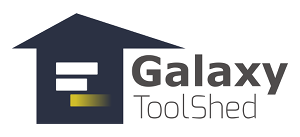 ](http://toolshed.g2.bx.psu.edu/)
](http://toolshed.g2.bx.psu.edu/)Tool Shed contributions in May, June, and July 2018.
Hub and Doc Updates
- Semi-annual project statistics update is mostly done.
- New Cloud Storage API page from Vahid Jalili.
-
A general update by Jennifer Hillman-Jackson to several support pages:
Releases
18.05 Galaxy Release
The 18.05 release of Galaxy is out. Thanks to the Galaxy Committers and you, our community!
Highlights:
- New Interface Style Library - Bootstrap 4 leading to VueJS
- Unlimited Browser Upload Size - Chunked and resumable file uploads out-of-the-box
- New Powerful Rule-Based Data Uploader - Use lists of rules for processing metadata tht describes the upload of arbitrarily complex collections
- GDPR Beta Mode - We introduce beta GDPR privacy mode
- New HIV-TRACE Plugin - Integration of a new visualization plugin - HIV-TRACE
- Visualization Frameworks Unified - The charts and generic visualization frameworks have been merged together
See the full release notes for more.
Thanks for using Galaxy!
Galaxy Docker Image 18.05
The Galaxy Docker project has a matching release, for Galaxy 18.05. The release features the 18.05 enhancements.
Planemo 0.49.0-0.54.0
Planemo is a set of command-line utilities to assist in building tools for the Galaxy project. These releases included numerous fixes and enhancements (~50 of them).
See GitHub for details.
galaxy-lib 18.5.8 - 18.5.13
galaxy-lib is a subset of the Galaxy core code base designed to be used as a library. This subset has minimal dependencies and should be Python 3 compatible. It's available from GitHub and PyPi.
ephemeris 0.8-0.9
Ephemeris is a small Python library and set of scripts for managing the bootstrapping of Galaxy plugins - tools, index data, and workflows. It has extensive documentation. These latest releases features numerous newly contributed features.
sequence_utils 1.1.3
Galaxy's sequence utilities are a set of Python modules for reading, analyzing, and converting sequence formats.
Earlier Releases
Other packages released since April.
Starforge 0.3.6
Starforge is a collection of scripts that supports the building of components for Galaxy. Specifically, with Starforge you can:
- Build Galaxy Tool Shed dependencies
- Build Python Wheels (e.g. for the Galaxy Wheels Server)
- Rebuild Debian or Ubuntu source packages (for modifications)
These things will be built in Docker. Additionally, wheels can be built in QEMU/KVM virtualized systems. Documentation can be found at starforge.readthedocs.org.
The release features Python 3-compatible setup.py wrapping and a fix for pip 10.
BioBlend 0.11.0
BioBlend is a Python library for interacting with CloudMan and Galaxy‘s API. BioBlend makes it possible to script and automate the process of cloud infrastructure provisioning and scaling via CloudMan, and running of analyses via Galaxy.
See the release notes for what's new in release 0.11.0.
And the rest ...
Other Galaxy packages that haven't had a release in the past four months can be found on GitHub.
Other News
-
From Björn Grüning
- PathwayMatcher is a "multi-omics pathway mapping and proteoform network generation" biorxiv.org/content/early/… by Luis Francisco Hernandez Sanchez and colleagues. Try it now on usegalaxy.eu
- New Training Platform for Big Data Analysis, press release from the University of Freiburg

